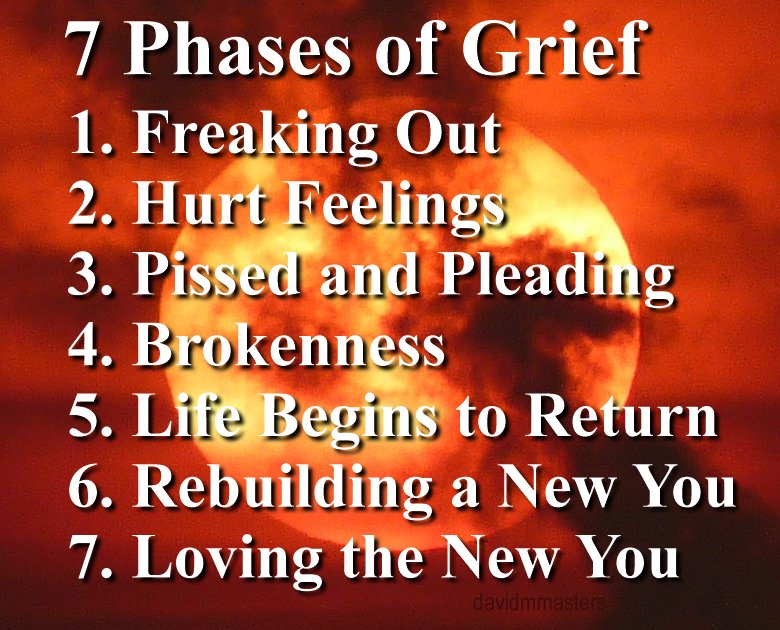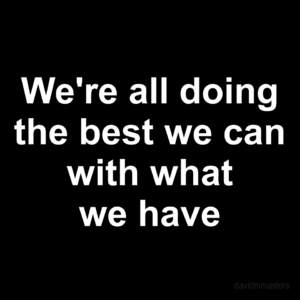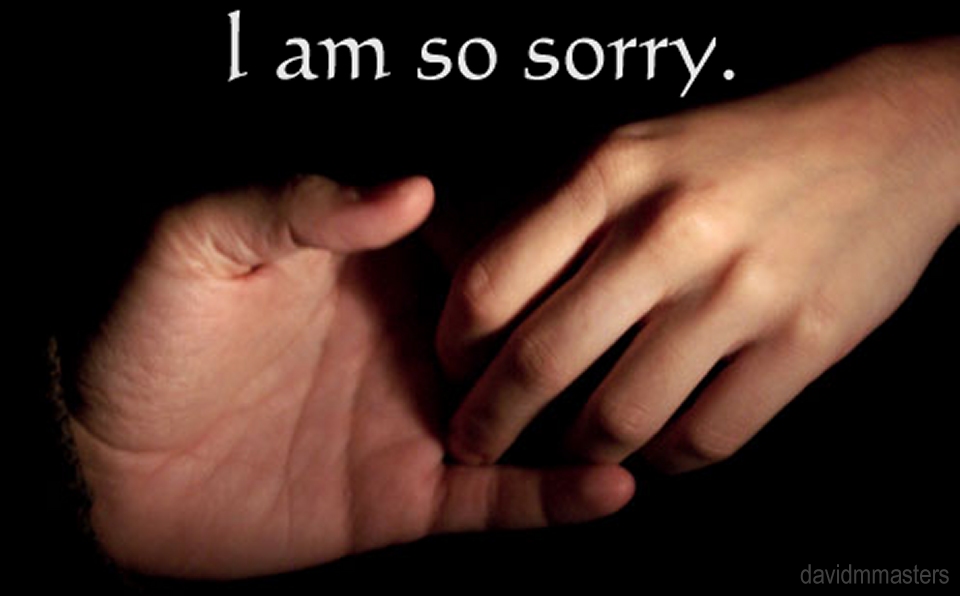When you have suffered a loss, any kind of unexpected (or even anticipated) loss it is a normal and positive detour to take in your life to grieve. To deny yourself any of the 7 phases of grief, will likely subject you to bottling up emotions, which will impact your life in negative ways.
Please find ways to love yourself and allow yourself to progress through any of the stages in any way you feel is best for you. There is no right way, there is no wrong way to do it, and take as much time as you need.
No one can tell you how to do this, as there is nothing more intimate and personal than your grief and grieving.
Briefly, the 7 phases of grief are,
1. Freaking Out
Your world has just been turned upside down, and you did not see this coming. You cannot believe that this thing did not work out like you had planned. You did your best to do everything right to ensure your success. Yet, here you are, all your hopes and dreams destroyed as you can clearly see the rubble. Of course, you’re going to freak out, and no one would blame you because we’d do the same thing, if we were you.
2. Hurt Feelings
There is a great deal of emotional expression that will run the gamut. One minute you will be feeling like the very life is draining out of you, unsure whether you can take another breath, or experience another heartbeat. The pain from your heart spreads throughout your whole body and you find yourself battling depression.
3. Pissed and Pleading
After a time spent dealing with having your feelings hurt to the core and the suffering that comes from that you move into the pissed and pleading phase. You are angry at everything, everyone, whether they were involved or not, and even worse, you get pissed at yourself. You start thinking about what you could have done wrong, or what you could have done better, and while you are fully aware of the unrepairable rubble, you start pleading for a second chance, may even attempt to rebuild something out of sheer will, but you realize at some point you cannot do anything about it. Them, you try to beg, or plead with God for another chance, like Groundhog Day.
4. Brokenness
Breaking, letting yourself crumble to a place where you feel like you are helpless to do anything about what has happened. You resign yourself to deciding that there is life on the other side of this, and now you can re-evaluate and plan for getting better, and if you’re committed to finding a way to move on, you can start to find your new normal.
5. Life Begins to Return
You’re starting to get through the day, one step at a time, and the steps are not quite as difficult as they were in phases 1 through 4. You’re feeling your body, mind, and soul start coming back to life. You are now starting to feel good enough to rebuild a new, more improved version of yourself.
6. Rebuilding a New You
Now you’re back on the path to healthful healing, getting over this particular episode and you start making plans to live a better life by being able to have some increasing clarity on this tragedy. From this vantage point you are able to separate the good from the bad and look to find the lessons and find the hidden treasures, the messages that were only for you, that you could not have been open to or received in any other way, and you find ways to integrate this new awareness into the more evolved version of you.
7. Loving the New You
Your evolution is complete, and you have let go of this thing which you can now leave behind in the past while retaining all that is valuable and/or necessary for the survival of the new you. How do you know you’ve let go? Because you can think about what you lost, and you have no negative feelings associated with it. Loving this new you means you don’t judge yourself for anything that’s happened in the past, you fully love and accept yourself and realize that we’re all just doing the best we can with what we have, and love what is, without judgment.


